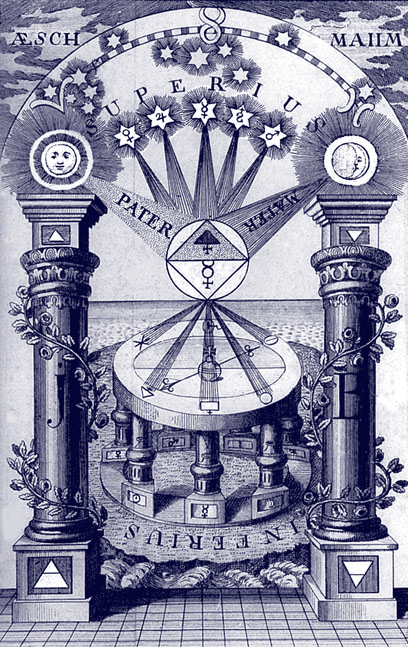

When Tannhauser emerged from the cave of Venus one of the first sounds which greeted him was the chant of a band of pilgrims going to Rome to obtain forgiveness for their sins, and this awakened within him an overpowering sense of his own delinquency. Therefore he kneels and exclaims in deep contrition:
While he is thus dejected and feels himself accursed, doomed to roam alone and unblessed through the world because of his unhallowed love for Venus, the minstrels come upon him, and recognizing him, endeavor to persuade him to accompany them to Wartburg, but as said before, it was the passionate love of Elizabeth that drove him thence, and he feels that he dare not approach her. As a last argument, Wolfram von Eschenbach tells Tannhauser that Elizabeth loves him. Elizabeth has never been at the contests of song since Tannhauser left, and Wolfram von Eschenbach, one of the purest and most beautiful characters in medieval history, endeavors to secure the happiness of Elizabeth by bringing Tannhauser back to her though he himself loves her, and it breaks his own heart to do so. On hearing this, passionfires Tannhauser's soul anew, and he sings:
On meeting Tannhauser at the castle, Elizabeth tells him:
Thus Elizabeth has inspired love in the hearts of two of the minstrels, Wolfram and Tannhauser, but how different this love is will be seen from the way each handles the theme in the contest of song, which follows in the second act, where the Lord of Wartburg opens the contest with the following words:
In this last verse we gain a true understanding of the relative scope and mission of knighthood and minstrelsy. It was the duty of knights to follow war, to defend with the sword all who were in need thereof, to fight with a strong arm the battle of the weak. Insofar as a knight followed the code of honor then prevailing, and defended the weak, keeping faith with friend and foe, he learned the lessons of physical and, in a certain sense, of moral courage, which are so necessary for the development of the soul. Anyone who enters upon the path of spiritual attainment is also a knight of noble birth, and it behooves him to realize that he must have the same virtues which were required of knighthood, for upon the spiritual path there are also dangers and places where physical courage is required. The Spirit, for instance, cannot come to liberation without physical inconvenience. Sickness usually attends soul growth to a greater or a less extent, and it requires physical courage to endure the suffering incident to that attainment, after which we all strive, and thus sacrifice the body for the soul.
It was the mission of minstrelsy to foster this courage and to inculcate the finer virtues also. All minstrels, therefore, had that poetical strain which brings us in touch with the higher and finer things in Nature not sensed by ordinary humanity; but more than that, many among the minstrels in medieval times were Initiates themselves, or perhaps lay brothers. Therefore their words were often found to be pearls of wisdom. They were looked up to as teachers, as wise men, and were friends of the true nobility.
There were, of course, exceptions, but Tannhauser was not one of these, however. We shall find that he was really a noble soul despite his faults, and in fact we should remember that we are all Tannhausers before we become Wolframs. We all respond to Tannhauser's definition of love before we grow to Wolfram's spiritual conception as given at the contest.
Lots are drawn to see who shall begin the contest, and the name of Wolfram appears on the slip first taken from the box. He therefore commences as follows:
At the end of Wolfram's song Tannhauser starts as if from a dream. He rises and sings:
Here we have the true description of the two extremes of love; that of Wolfram being the love of soul for soul, Tannhauser's being the love of sense. One is the love that seeks to give, the other demands possession that it may receive. This is only the beginning of the contest, of which we shall hear fully later, but these being the definitions first given by the two chief exponents of love, it is well worth noting that Wolfram von Eschenbach stands as the exponent of the new and the more beautiful love which is to supersede the primeval conception.
Even to this day, unfortunately, the ancient idea is entertained that possession is the signature of love. Those who believe in rebirths in alternate sexes, should by this fact be sufficiently convinced that, as the soul is bisexual and our bodies contain rudimentary organs belonging to the opposite sex, so it is no more than proper and just that each human being regardless of the polarity of the present garb, should have the same privileges as the other.
(You are welcome to e-mail your answers and/or comments to us. Please be sure to include the course name and Independent Study Module number in your e-mail to us.)
1. What was the duty of the Knights of old?
2. What lessons were learned by the Knights in performing their duty?
3. What virtues are necessary for any one entering upon the spiritual path of attainment?
4. What sacrifice is made to obtain soul growth?
5. Who and what were the Minstrels of medieval times?
6. Why should each human being, male and female, have the same privileges?